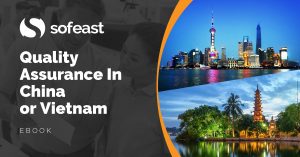 The Chaina magazine picked up an interesting article from Reuters this month: SE Asian governments gamble on making Cheap Labour Less Cheap. Here are a few excerpts:
The Chaina magazine picked up an interesting article from Reuters this month: SE Asian governments gamble on making Cheap Labour Less Cheap. Here are a few excerpts:
In Thailand:
In Thailand, minimum wages will jump by 35 percent in some regions from January, on top of a nationwide increase of 40 percent last April.
In Indonesia:
In the capital, Jakarta, a newly elected mayor has announced a 44 percent increase in the monthly minimum wage to 1.5 million rupiah ($160).
In Vietnam:
The prime minister signed a decree on December 4 raising the minimum wage for laborers by 16 to 18 percent, lifting laborers’ wages to anywhere between 1.65 million to 2.35 million dong ($79-$113) per month.
In Malaysia:
Malaysia plans to bring in a minimum wage in January of up to $300 a month, which will give some 3 million workers an increase averaging 5 percent.
This article focuses on South-East Asia, but countries like Bangladesh have even faster wage increases (as driven by market forces).
A highlight of this article is that employers’ associations have vigorously protested against these raises. In these countries, most exporters’ business models are based on cheap wages. They are seldom capable of re-organizing their processes and gain in productivity.
I wish all journalists understood the difference between low wages and low labor cost. If productivity is very high, labor costs can be low even with high wages…
—
Also of interest in this month’s edition of the Chaina magazine: an article about the train line from Chongqing to Germany.
Get expert help to improve YOUR product quality from suppliers in China or Vietnam. Read: Quality Assurance In China Or Vietnam For Beginners
Grab your free copy of Sofeast’s eBook and learn the common traps new importers from China or Vietnam fall into, and how to avoid or overcome them in order to get the best possible production results. It also outlines a proven quality assurance strategy that you can follow in order to have better control over your product quality, covering:
- Finding Suitable Suppliers
- Defining your Requirements before Production Starts
- Don’t Skip the New Product Introduction Process
- Regular Quality Inspections (Trust but Verify)
- Tying Payments to Quality Approvals
Sounds good? Hit the button below to get your copy now:


If journalists understood such things, they would not be journalists. =)
A few (very very few?) of them do, but apparently not the one who wrote this article for Reuters!